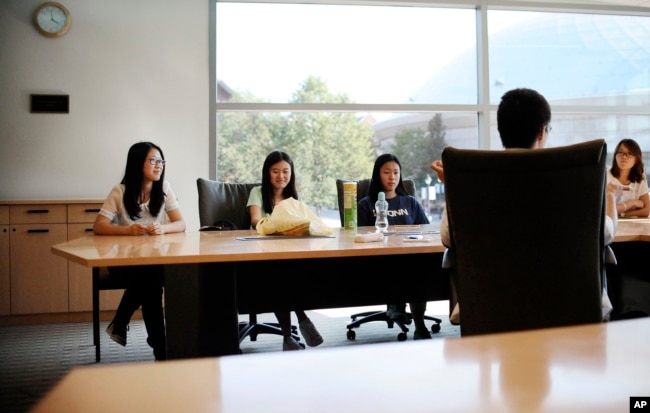The door to American colleges and universities remains wide open and welcoming to international students despite policies tightening visas, State Department officials say.
"The State Department remains absolutely committed to what you do," senior adviser Rick Ruth said this week at Education USA, a conference for department educational advisers who connect U.S. institutions of higher education with foreign students. He said the department was committed "to making sure that international student success is part of our collective success."
A travel ban on immigrants, including students, from six Muslim-majority countries to the U.S. was issued in March, but federal courts have prevented it from taking full effect.
"We must undertake a rigorous review of our visa and refugee vetting programs to increase our confidence in the entry decisions we make for visitors and immigrants to the United States. We cannot risk the prospect of malevolent actors using our immigration system to take American lives," then-Homeland Security Secretary John Kelly wrote when the travel ban was announced.
Those policies are still under review, which has created uncertainty in the international education industry that brought $32.8 billion to the U.S. economy last year.
Offer assurance
"As always, there will be visa concerns and concerns navigating port of entry procedures," Ruth told the educational advisers. "You will have to deal with these to assure people that we are still a welcoming country and that there is an opportunity here."
Thomas A. Shannon Jr., undersecretary of state for political affairs, reiterated the government's commitment to "world-class higher education."
"The Department of State is committed to continuing to collaborate with the U.S. higher education community to facilitate the movement of students to and from the United States," he said at the conference.
The billions of dollars that international students contributedto the U.S. economy last year made that market the country's seventh-largest service-sector import, Shannon said.
"In our discussions with Congress on the importance of our work, we never fail to cite that statistic, and it never fails to make a significant and positive impression," Ruth said.
While growth in the international education market in the U.S. has ballooned over the past decade, there are signs that the market is slowing amid increasing competition. As many as 4 million international students are poised to study outside their countries, Shannon said, noting that 300,000 American students studied abroad in 2015.
Chinese students, meanwhile, make up 30 percent of the 1 million international students in the U.S. China also has seen growth in attracting students to its own campuses.
In 2003, Africa sent 2,000 students to study in China. By 2015, that number had swelled to 50,000, Shannon said.
Asian consortium
And recently, a China-led consortium of universities in Asia was announced. The project, drawing on advice from consultants from top U.S. education institutions, will try to retain top Asian students and attract other students from abroad.
The competition for students reflects a growing belief worldwide in the power of top schools to boost economies. Attracting international students to U.S. schools "is a barometer for where we stand in the world," Ruth said.
"We must work to ensure American institutions remain the leaders in attracting the top global capital so that we can play an even greater role in the development of the next cohort of world leaders," Shannon told conferees.
"The citizens of just one nation alone will never overcome our global challenges," he added. "It's all about partnership."


No comments:
Post a Comment